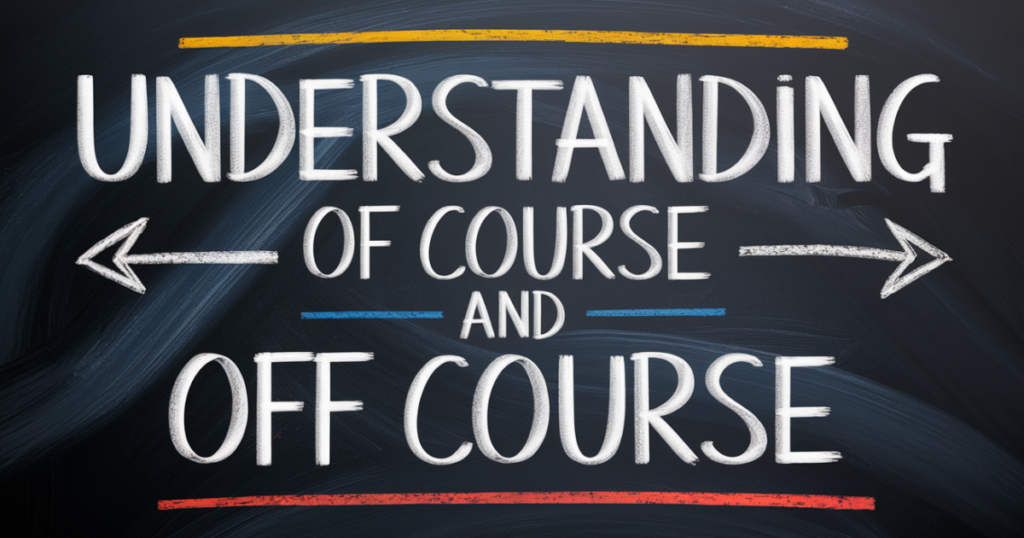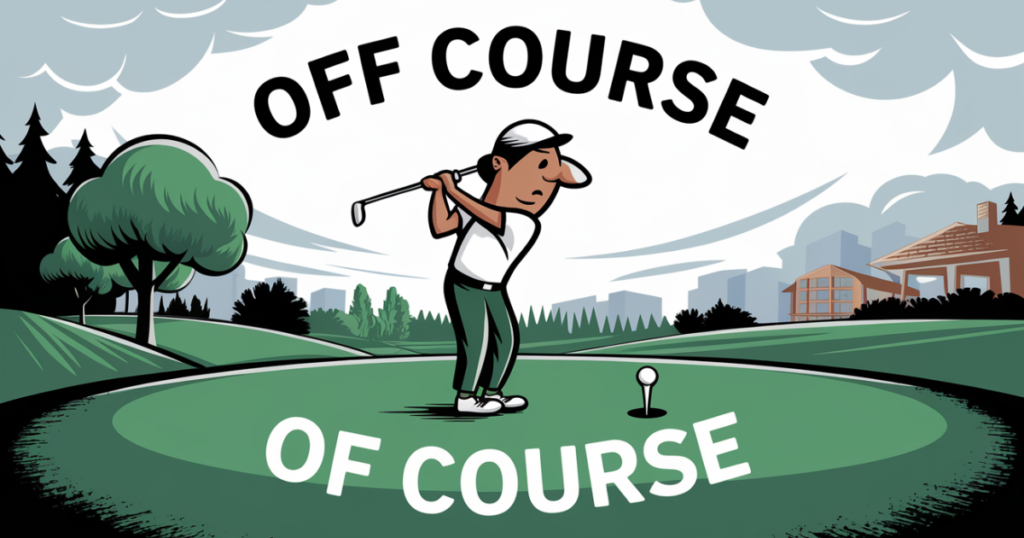When it comes to the phrases “of course or off course,” many people often confuse the two. While they may sound similar, their meanings and uses are entirely different. Understanding the distinction between these phrases is essential for clear communication.
In this article, we will explore the meanings, contexts, and correct usages of “of course” and “off course.” By clarifying these terms, you’ll be better equipped to express your thoughts accurately and avoid common language mistakes in your writing and conversations.
Understanding Of Course And Off Course

Of Course: Definition and Usage
“Of course” is a commonly used phrase that indicates agreement, certainty, or something that is obvious. It serves to reassure or affirm a statement, often suggesting that the answer is clear or expected.
This expression is used in both formal and informal contexts, making it versatile in everyday conversations. Understanding how to use “of course” correctly can enhance clarity in communication.
Examples of usage:
- Are you coming to the party?
Of course, I wouldn’t miss it! - Can you help me with this project?
Of course, I’d be happy to assist!
You Like To Read This: Of Course Or Ofcourse: Clearing Up The Confusion
Off Course: Definition and Usage
“Off course” is a phrase used to describe a situation where something has deviated from its intended path or direction. It is often used in nautical or aviation contexts but can also apply metaphorically to any situation that has strayed from its original plan.
Recognizing when something is “off course” can help in making necessary adjustments to get back on track. This phrase emphasizes the importance of staying aligned with goals and objectives.
Examples of usage:
- The ship was off course due to the strong winds.
- After reviewing the project, we realized it was off course and needed major revisions.
Side-by-Side Comparison
| Of Course | Off Course |
| Indicates agreement, certainty, or obviousness. | Describes deviation from an intended path or plan. |
| Used to affirm or reassure in conversation. | Often used in nautical or aviation contexts but applicable metaphorically. |
| Example: “Of course, I’ll help you.” | Example: “The plane was off course due to the storm.” |
The distinction between “of course” and “off course” is crucial for effective communication. While “of course” conveys affirmation and certainty, “off course” highlights a divergence from a predetermined trajectory.
Understanding these phrases enhances clarity in both spoken and written discourse, allowing for precise expression of ideas and intentions.
Everyday Usage Examples

In everyday conversations, phrases like “of course” and “off course” are frequently used to convey specific meanings.
For instance, you might hear “of course” in casual discussions, such as when someone asks for help: “Can you pick up the groceries?” and the response is, “Of course!” This shows agreement and a willingness to assist.
On the other hand, “off course” might come up in discussions about travel or planning. For example, if someone says, “I took a wrong turn and ended up off course,” it indicates that they have deviated from their intended route.
Conclusion
In conclusion, understanding the everyday usage of phrases like “of course” and “off course” is essential for effective communication. “Of course” is a versatile expression that conveys agreement and assurance, making it useful in various conversational contexts.
Conversely, “off course” highlights a deviation from an intended path, applicable in both literal and metaphorical situations. By using these phrases correctly, you enhance clarity and understanding in your interactions. Familiarity with such expressions enriches language skills and helps convey thoughts more accurately.

Grammerlytips.com, authored by Jame, offers expert tips and insights on mastering grammar, enhancing writing skills, and boosting communication effectiveness.

